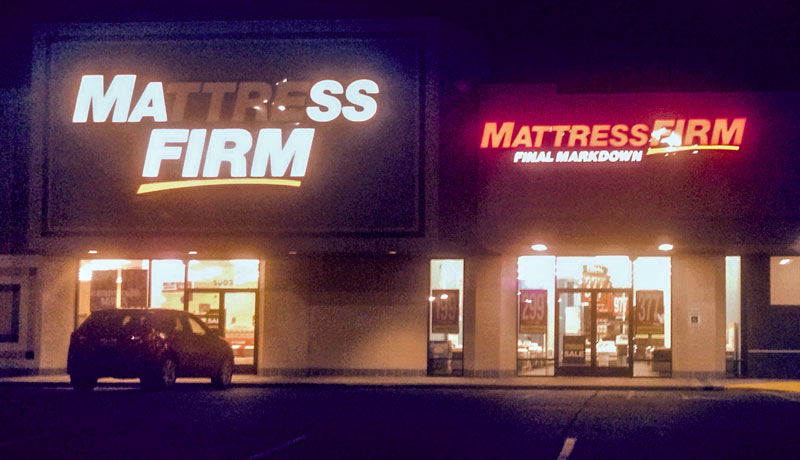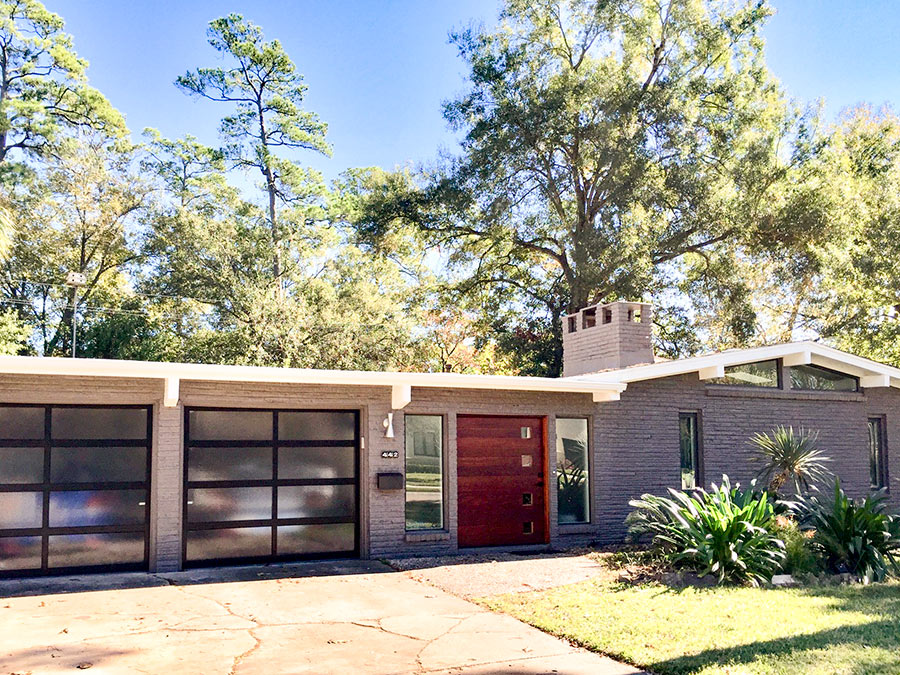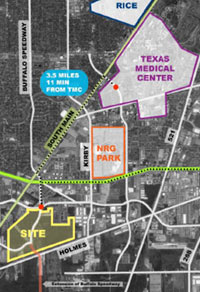COMMENT OF THE DAY: WHAT PARKING REQUIREMENTS FOR BARS REALLY ENCOURAGE  “Uggh . . . Every thread on here, or nextdoor, etc., about a new bar or restaurant attracts an inevitable ‘where will all these people park?‘ comment.
Why do people feel the need to drive to this bar, and the others in the vicinity? Because our obsession with parking requires every bar or restaurant to dedicate 3/4 of their land area to machinery storage, making everything so far apart you can’t walk anywhere.
Wouldn’t it make more sense to PROHIBIT bars from having parking lots, instead? Why does our city REQUIRE bar operators to subsidize one of the most dangerous and reckless activities people regularly engage in — drinking and driving — by forcing bars to provide parking for their patrons? Wouldn’t you rather the bars in your neighborhood made it as difficult as possible for people to drive there, and take an Uber instead?
Let’s keep the drunks off our streets: Zero out the parking minimum on any establishment with an on-premise liquor license.” [Angostura, commenting on The Up-Scaled Bungalow Bar Now Puffing Up in Shady Acres Across from Cedar Creek] Illustration: Lulu
“Uggh . . . Every thread on here, or nextdoor, etc., about a new bar or restaurant attracts an inevitable ‘where will all these people park?‘ comment.
Why do people feel the need to drive to this bar, and the others in the vicinity? Because our obsession with parking requires every bar or restaurant to dedicate 3/4 of their land area to machinery storage, making everything so far apart you can’t walk anywhere.
Wouldn’t it make more sense to PROHIBIT bars from having parking lots, instead? Why does our city REQUIRE bar operators to subsidize one of the most dangerous and reckless activities people regularly engage in — drinking and driving — by forcing bars to provide parking for their patrons? Wouldn’t you rather the bars in your neighborhood made it as difficult as possible for people to drive there, and take an Uber instead?
Let’s keep the drunks off our streets: Zero out the parking minimum on any establishment with an on-premise liquor license.” [Angostura, commenting on The Up-Scaled Bungalow Bar Now Puffing Up in Shady Acres Across from Cedar Creek] Illustration: Lulu
Tag: Comments
COMMENT OF THE DAY: IN ‘HOUSTON, WE HAVE A PROBLEM,’ HOUSTON HAD THE SOLUTION  “Oy. If you put a bit of thought into the phrase you might remember that it was a clarion call for help in which “Houston†solved the problem and was held the hero. Hackneyed yes. Annoying no. Try living in Cleveland, Ohio where ‘the mistake by the lake’ gets repeatedly uttered.” [Diaspora, commenting on Exploring the Size and Scope of Houston’s ‘Houston, We Have a Problem’ Problem] Photo of device installed in-flight on Apollo 13 using duct tape, maps, and other materials on hand: NASA
“Oy. If you put a bit of thought into the phrase you might remember that it was a clarion call for help in which “Houston†solved the problem and was held the hero. Hackneyed yes. Annoying no. Try living in Cleveland, Ohio where ‘the mistake by the lake’ gets repeatedly uttered.” [Diaspora, commenting on Exploring the Size and Scope of Houston’s ‘Houston, We Have a Problem’ Problem] Photo of device installed in-flight on Apollo 13 using duct tape, maps, and other materials on hand: NASA
COMMENT OF THE DAY RUNNER-UP: HELP ME UNCOVER THE GREAT MATTRESS STORE PROLIFERATION PLOT  “There has got to be some kind of conspiracy going on. There is never anyone in any of their locations or Mattress Firm at any time of day except the person that works there. There are 2 Mattress 1 One locations right across the street from each other at Richmond and 610. Anywhere there is a Starbucks, there is a mattress store very close by. I have no knowledge of anyone, or anyone that knows anyone that has purchased a mattress from either of these two stores. Someone please explain how and why.” [Eric, commenting on A Mattress Store Has Closed in Montrose; previously on Swamplot] Photo of adjacent Mattress Firms on Westheimer at Montrose: Swamplot inbox
“There has got to be some kind of conspiracy going on. There is never anyone in any of their locations or Mattress Firm at any time of day except the person that works there. There are 2 Mattress 1 One locations right across the street from each other at Richmond and 610. Anywhere there is a Starbucks, there is a mattress store very close by. I have no knowledge of anyone, or anyone that knows anyone that has purchased a mattress from either of these two stores. Someone please explain how and why.” [Eric, commenting on A Mattress Store Has Closed in Montrose; previously on Swamplot] Photo of adjacent Mattress Firms on Westheimer at Montrose: Swamplot inbox
COMMENT OF THE DAY: A QUICKER END TO MEMORIAL BEND’S MOD ERA  “The Memorial Bend neighborhood (which includes the featured Faust Lane home) was impacted hard by Harvey. It has/had some of the best collections of mid-century modern homes in Houston. Due to escalating land values, their numbers were already dwindling annually before the storm and I’m afraid this will only reduce their numbers faster. At least, we’ll have historic Google street view as a reference.” [Native Houstonian, commenting on Daily Demolition Report: The Faust and the Furious] Photo of 442 Faust Ln.: Griffin Vance
“The Memorial Bend neighborhood (which includes the featured Faust Lane home) was impacted hard by Harvey. It has/had some of the best collections of mid-century modern homes in Houston. Due to escalating land values, their numbers were already dwindling annually before the storm and I’m afraid this will only reduce their numbers faster. At least, we’ll have historic Google street view as a reference.” [Native Houstonian, commenting on Daily Demolition Report: The Faust and the Furious] Photo of 442 Faust Ln.: Griffin Vance
COMMENT OF THE DAY: HOW LAST NIGHT’S A$AP MOB SHOW ON THE WHITE OAK MUSIC HALL LAWN MIGHT’VE BROUGHT DOWN THE HOUSE “Pigs get fat, hogs get slaughtered. WOMH should cut a deal fast to make major sound mitigation improvements before the court and the City shuts them down. People on both sides of I-45 are hopping mad about the concert last night. It is a huge roll of the dice to expect a bunch of jurors to say: ‘Yeah, a big concert venue in the middle of a residential neighborhood is no big deal.’†[Old School, commenting on FEMA Aid Deadline Extended; Pre-Trial Outdoor Shows Can Go On at White Oak Music Hall; Hakeem Olajuwon in the Red Mango Biz] Video clip of last night’s outdoor concert (NSFW): FIRST CLASS BEATS
COMMENT OF THE DAY: A WATERSHED APPROACH TO PAYING FOR FLOOD CONTROL  “. . . I think that if we are going to be realistic about the way that we finance flood control, that the core of such a plan needs to take a page from how flood insurance gets underwritten. Everybody pays a property tax to a watershed-specific flood control entity, but that tax is adjusted based on the elevation of their first-floor living area relative to the Base Flood Elevation. If you’re more than a few feet above it, your tax is very low. If you live more than a few feet below it . . . you’re probably going to pay so much in taxes that it’ll become immediately economic to raise your structure or demolish it. Right away, the inventory and value of property subject to flood risk is reduced; and what’s left that is tolerably at-risk pays for its own reduced need for risk mitigation. And . . . if we’re too gun shy to pull the trigger on a plan like this, which would totally wipe out a lot of people’s equity in vast swaths of real estate, okay well that’s where people not at very much risk should be expected to pay more taxes even without receiving very much in the way of benefits. Yeah, I’m basically proposing Obamacare for flood control in Houston, but only as a humane alternative which reveals a startling truth: that the big money for this sort of thing is unlikely to come from up on high, from the feds or the state government (and it shouldn’t IMO). Financing this stuff locally is going to hurt. One thing is very very clear: whatever kinds of administrative bodies are created or re-jiggered to deal with this issue have got to address legacy development first and foremost. We need a plan to cope with what is already on the ground. This is not something that we can just build ourselves out of, going forward, with stricter rules for new development, feel the catharsis, hold hands and sing Kumbaya, and call it a day.” [TheNiche, commenting on An 8th Wonder Distillery; New Bridges for Brays Bayou; How Apartment Buildings Get On Your Nerves]
“. . . I think that if we are going to be realistic about the way that we finance flood control, that the core of such a plan needs to take a page from how flood insurance gets underwritten. Everybody pays a property tax to a watershed-specific flood control entity, but that tax is adjusted based on the elevation of their first-floor living area relative to the Base Flood Elevation. If you’re more than a few feet above it, your tax is very low. If you live more than a few feet below it . . . you’re probably going to pay so much in taxes that it’ll become immediately economic to raise your structure or demolish it. Right away, the inventory and value of property subject to flood risk is reduced; and what’s left that is tolerably at-risk pays for its own reduced need for risk mitigation. And . . . if we’re too gun shy to pull the trigger on a plan like this, which would totally wipe out a lot of people’s equity in vast swaths of real estate, okay well that’s where people not at very much risk should be expected to pay more taxes even without receiving very much in the way of benefits. Yeah, I’m basically proposing Obamacare for flood control in Houston, but only as a humane alternative which reveals a startling truth: that the big money for this sort of thing is unlikely to come from up on high, from the feds or the state government (and it shouldn’t IMO). Financing this stuff locally is going to hurt. One thing is very very clear: whatever kinds of administrative bodies are created or re-jiggered to deal with this issue have got to address legacy development first and foremost. We need a plan to cope with what is already on the ground. This is not something that we can just build ourselves out of, going forward, with stricter rules for new development, feel the catharsis, hold hands and sing Kumbaya, and call it a day.” [TheNiche, commenting on An 8th Wonder Distillery; New Bridges for Brays Bayou; How Apartment Buildings Get On Your Nerves]
COMMENT OF THE DAY: WHAT YOU’RE SEEING AND SMELLING IN FLOODED APARTMENTS  “I have a question regarding the apartments in Kingwood. There is a statement in the letter from the apartments indicating that there is a clear difference between mold and mildew. I understand it as they are both one and the same when it comes to interior livable spaces. If it smells and-or is visible you have a problem irregardless of the classification of mold or mildew.
Is this not correct? Is there a legal distinction per Texas Law? Can someone please chime in? Thanks.” [It Smells, commenting on The City That Will Be Building and Rebuilding Forever; Houston’s Long Amazon Odds; The Latest Poke Place] Illustration: Lulu
“I have a question regarding the apartments in Kingwood. There is a statement in the letter from the apartments indicating that there is a clear difference between mold and mildew. I understand it as they are both one and the same when it comes to interior livable spaces. If it smells and-or is visible you have a problem irregardless of the classification of mold or mildew.
Is this not correct? Is there a legal distinction per Texas Law? Can someone please chime in? Thanks.” [It Smells, commenting on The City That Will Be Building and Rebuilding Forever; Houston’s Long Amazon Odds; The Latest Poke Place] Illustration: Lulu
COMMENT OF THE DAY: A SIMPLE QUESTION ABOUT BUYING A HOME IN HOUSTON  “I’m in the market for a new place. Where can I find if the house was flooded or is otherwise in a compromised zone? It appears in Harris County such information wasn’t recorded or readily available. Thanks.” [Sparta, commenting on What Makes West Houston the Bermuda Triangle of Real Estate Disclosure] Illustration: Lulu
“I’m in the market for a new place. Where can I find if the house was flooded or is otherwise in a compromised zone? It appears in Harris County such information wasn’t recorded or readily available. Thanks.” [Sparta, commenting on What Makes West Houston the Bermuda Triangle of Real Estate Disclosure] Illustration: Lulu
COMMENT OF THE DAY: A BETTER IDEA FOR WHAT TO DO WITH THE SPACES UNDER FREEWAYS IN HOUSTON  “. . . This gave me an idea. That land under freeways isn’t good for retail or anything inhabited. But it could be a perfect place to dig down and create auxiliary stormwater detention facilities.
Yeah the water will be filthy, like your friends bikes usually are, but floodwater usually is. And as auxiliary detention they would only be used in extreme rainfall events (once or twice a year during so-called ‘hundred year’ storms).” [ZAW, commenting on Comment of the Day Second Runner-Up: Things To Think About Before You Start Planning Under-Freeway Developments] Illustration: Lulu
“. . . This gave me an idea. That land under freeways isn’t good for retail or anything inhabited. But it could be a perfect place to dig down and create auxiliary stormwater detention facilities.
Yeah the water will be filthy, like your friends bikes usually are, but floodwater usually is. And as auxiliary detention they would only be used in extreme rainfall events (once or twice a year during so-called ‘hundred year’ storms).” [ZAW, commenting on Comment of the Day Second Runner-Up: Things To Think About Before You Start Planning Under-Freeway Developments] Illustration: Lulu
COMMENT OF THE DAY: JUST CHECKING IN ON HOW EVERYONE’S KITCHEN COUNTER MAINTENANCE PROGRAM IS GOING  “I keep hearing that you’re supposed to re-seal granite countertops once a year. Does anyone actually do this?” [Angostura, commenting on The Rise And Decline Of America’s Granite Countertops Obsession] Photo: MS International
“I keep hearing that you’re supposed to re-seal granite countertops once a year. Does anyone actually do this?” [Angostura, commenting on The Rise And Decline Of America’s Granite Countertops Obsession] Photo: MS International
COMMENT OF THE DAY RUNNER-UP: HOW ABOUT A DO-OVER FOR UT’S HOUSTON CAMPUS PROPOSAL?  “I’d be steaming mad if I were UT right now. I don’t see how everyone can align with A&M, but UT asks for everyone to come together after they get the land and everyone tells them to leave. Why didn’t the city/UH/politicians suggest a similar model for UT? They should now move forward with their initial plans. It would be great for the city.” [Innerlooped, commenting on Houston’s Record Rental Levels; The Neighborhoods Hit Hardest By Harvey; A Debris Removal Progress Update; previously on Swamplot] Map showing location of proposed 300-acre UT Houston campus: Houston Public Media
“I’d be steaming mad if I were UT right now. I don’t see how everyone can align with A&M, but UT asks for everyone to come together after they get the land and everyone tells them to leave. Why didn’t the city/UH/politicians suggest a similar model for UT? They should now move forward with their initial plans. It would be great for the city.” [Innerlooped, commenting on Houston’s Record Rental Levels; The Neighborhoods Hit Hardest By Harvey; A Debris Removal Progress Update; previously on Swamplot] Map showing location of proposed 300-acre UT Houston campus: Houston Public Media
COMMENT OF THE DAY SECOND RUNNER-UP: THINGS TO THINK ABOUT BEFORE YOU START PLANNING UNDER-FREEWAY DEVELOPMENTS  “One conclusion I’ve made about the U.S., compared to European countries, is that we don’t use space efficiently. We’ve got all these open ditches, grass patches . . . along our roadways. So this Tokyo solution appeals to me.
But while I haven’t traveled extensively, I feel that selling/renting under-highway space to retail smacks of third-world. Would Houston ever go for that?
There is so much filth that washes off roadways and would filter into/onto these shops. A friend has his bike storage cage under the apartment driveway. It’s just a drive! yet the bikes always have a greasy blackness on them. Ever park in an airport garage for more than a couple days? Your car is filthy.
Maybe it’s just me, but I wouldn’t/couldn’t eat a taco made under the Pierce Elevated.” [movocelot, commenting on Midtown Sears Closure Nets Rice 9 Acres near the Wheeler Transit Center] Illustration: Lulu
“One conclusion I’ve made about the U.S., compared to European countries, is that we don’t use space efficiently. We’ve got all these open ditches, grass patches . . . along our roadways. So this Tokyo solution appeals to me.
But while I haven’t traveled extensively, I feel that selling/renting under-highway space to retail smacks of third-world. Would Houston ever go for that?
There is so much filth that washes off roadways and would filter into/onto these shops. A friend has his bike storage cage under the apartment driveway. It’s just a drive! yet the bikes always have a greasy blackness on them. Ever park in an airport garage for more than a couple days? Your car is filthy.
Maybe it’s just me, but I wouldn’t/couldn’t eat a taco made under the Pierce Elevated.” [movocelot, commenting on Midtown Sears Closure Nets Rice 9 Acres near the Wheeler Transit Center] Illustration: Lulu
COMMENT OF THE DAY: DON’T SAY I DIDN’T WARN YOU ABOUT THE WHOLE MOLD BUSINESS  “So for homeowners you just cut the sheetrock, and rebuild all of the stuff at 3 feet and go down the road? My feeling is that every house that flooded has some trace of E. Coli and mold. Pretty soon you’ll see mold lawyer commercials suing every contractor that worked in these places. Doctors will soon get in on the action too. Hell, back in 2000 when mold lawsuits were born my framer had a magnetic door sign for ‘mold testing and remediation’ in the back seat of his pick-up. Get ready for it again.” [Sporey McGee, commenting on Housing Authority Ready To Demolish More Than a Third of Clayton Homes After Harvey Flooding] Illustration: Lulu
“So for homeowners you just cut the sheetrock, and rebuild all of the stuff at 3 feet and go down the road? My feeling is that every house that flooded has some trace of E. Coli and mold. Pretty soon you’ll see mold lawyer commercials suing every contractor that worked in these places. Doctors will soon get in on the action too. Hell, back in 2000 when mold lawsuits were born my framer had a magnetic door sign for ‘mold testing and remediation’ in the back seat of his pick-up. Get ready for it again.” [Sporey McGee, commenting on Housing Authority Ready To Demolish More Than a Third of Clayton Homes After Harvey Flooding] Illustration: Lulu
COMMENT OF THE DAY: THE LAST MESSAGE OF DOWNTOWN’S ENTOMBED WESTERN UNION BUILDING  “. . . Soon after I moved to Houston, I had money wired to me at this Western Union building (this would have been November of ’81). Didn’t make much of an impression on me. I think the façade had been stripped off, and the office itself was shabby.
I started work at HL&P in February of ’82, and our offices looked directly across the street to the construction site. The ‘big pour’ for the concrete foundation slab was quite an event. Starting very early on a Sunday morning, a seemingly endless parade of mixer trucks crept down Louisiana Street. Obviously, most of the block had been excavated, and the lot where Western Union sat (well, sits) was supported by a series of diagonal beams. After seeing the engineering required to save that lot, the lower ‘banking hall’ design for that side of the building makes sense.
While construction continued, the south side of the WU was given a fresh coat of paint with a large graphic proclaiming ‘A Gerald R. Hines Project‘ (or some such thing), which doubtlessly is still there, virtually unseen for 35 years.” [BigTex, commenting on Comment of the Day: Inside the Western Union Building Buried Inside the Bank of America Center Downtown] Photo of banking hall interior, looking toward the Western Union building’s south wall: Bank of America Center
“. . . Soon after I moved to Houston, I had money wired to me at this Western Union building (this would have been November of ’81). Didn’t make much of an impression on me. I think the façade had been stripped off, and the office itself was shabby.
I started work at HL&P in February of ’82, and our offices looked directly across the street to the construction site. The ‘big pour’ for the concrete foundation slab was quite an event. Starting very early on a Sunday morning, a seemingly endless parade of mixer trucks crept down Louisiana Street. Obviously, most of the block had been excavated, and the lot where Western Union sat (well, sits) was supported by a series of diagonal beams. After seeing the engineering required to save that lot, the lower ‘banking hall’ design for that side of the building makes sense.
While construction continued, the south side of the WU was given a fresh coat of paint with a large graphic proclaiming ‘A Gerald R. Hines Project‘ (or some such thing), which doubtlessly is still there, virtually unseen for 35 years.” [BigTex, commenting on Comment of the Day: Inside the Western Union Building Buried Inside the Bank of America Center Downtown] Photo of banking hall interior, looking toward the Western Union building’s south wall: Bank of America Center
COMMENT OF THE DAY: YOU SHOULD GET FLOOD INSURANCE EVEN IF YOU LIVE OUTSIDE ANY DESIGNATED FLOODPLAIN  “Consider the following:
1.) Houston as a whole is a low-lying area.
2.) FEMA Flood Maps are outdated; this is not a new revelation following Harvey.
3.) Flood insurance for Zone X is cheap (I pay $425/year for $200k building/$80k contents coverage)
4.) Your house is outside of both the 1% and 0.2% flood plains (i.e. Zone X).
Given those four conditions alone, buying flood insurance should be a no brainer for anyone that owns property in Houston, particularly if you’re even *near* a 100- or 500-year line. And after this event, which has made it quite clear that the models that determine what a 0.2% and 1% event is are inadequate, not getting flood insurance wherever you are in this town makes no sense at all. Heck, it doesn’t even take a Harvey to flood your ‘never been flooded house’ – all it takes is a blocked storm drain, a collapsed drainage ditch, poor lot grading, or any number of other non-“biblical†localized catastrophic events. Hopefully more people will realize this now, but it’s very sad that so many didn’t until 40-50 in. of rain fell over the entire county in less than 48 hours. [meh, commenting on Suing the Army Corps for Reservoir Releases; A City App for Debris Removal; 30 Years of the GRB] Illustration: Lulu
“Consider the following:
1.) Houston as a whole is a low-lying area.
2.) FEMA Flood Maps are outdated; this is not a new revelation following Harvey.
3.) Flood insurance for Zone X is cheap (I pay $425/year for $200k building/$80k contents coverage)
4.) Your house is outside of both the 1% and 0.2% flood plains (i.e. Zone X).
Given those four conditions alone, buying flood insurance should be a no brainer for anyone that owns property in Houston, particularly if you’re even *near* a 100- or 500-year line. And after this event, which has made it quite clear that the models that determine what a 0.2% and 1% event is are inadequate, not getting flood insurance wherever you are in this town makes no sense at all. Heck, it doesn’t even take a Harvey to flood your ‘never been flooded house’ – all it takes is a blocked storm drain, a collapsed drainage ditch, poor lot grading, or any number of other non-“biblical†localized catastrophic events. Hopefully more people will realize this now, but it’s very sad that so many didn’t until 40-50 in. of rain fell over the entire county in less than 48 hours. [meh, commenting on Suing the Army Corps for Reservoir Releases; A City App for Debris Removal; 30 Years of the GRB] Illustration: Lulu

